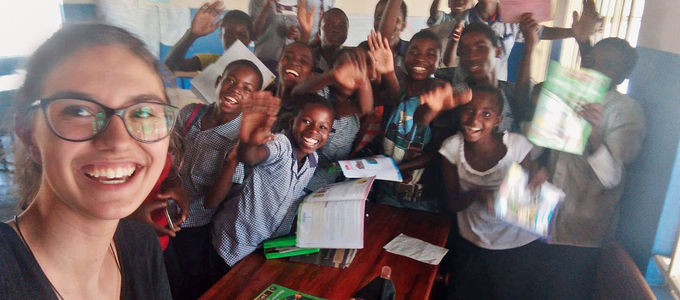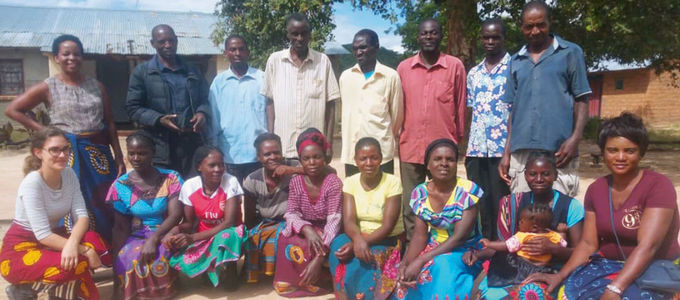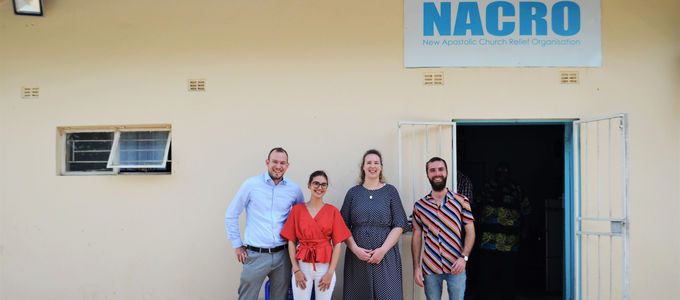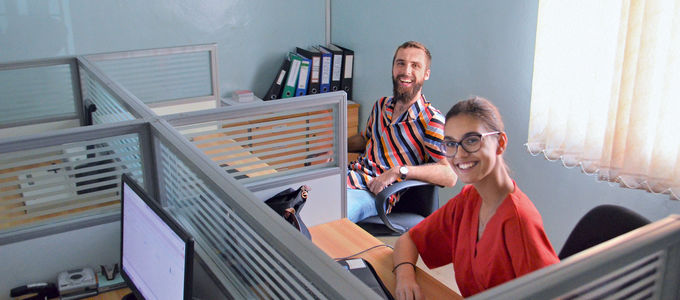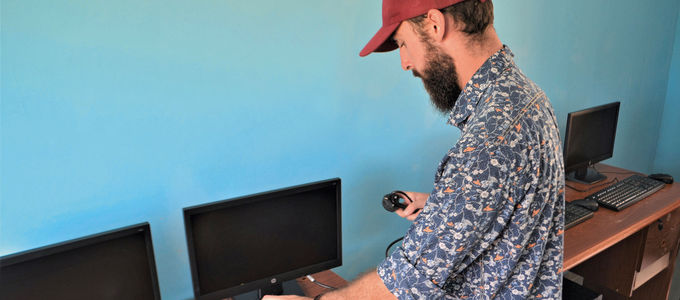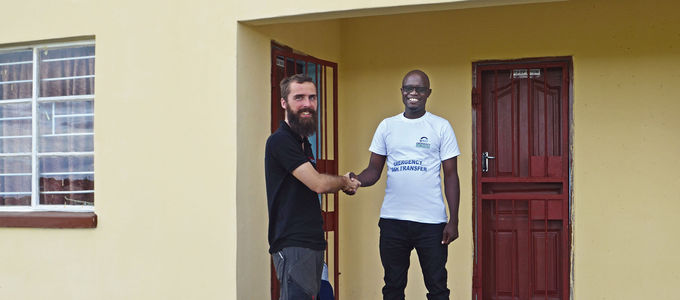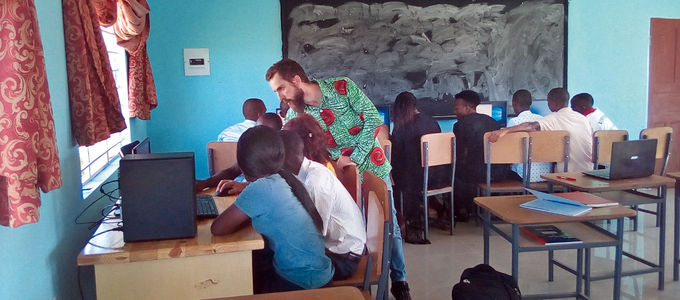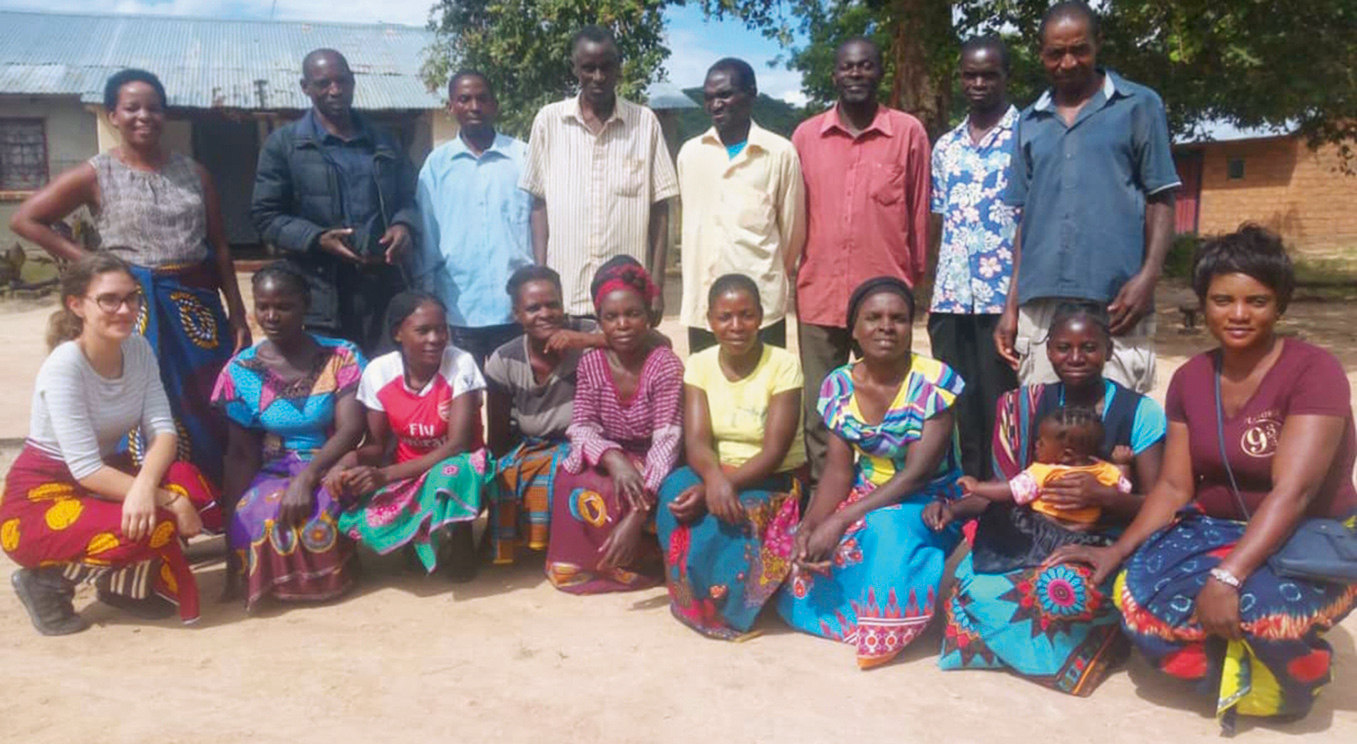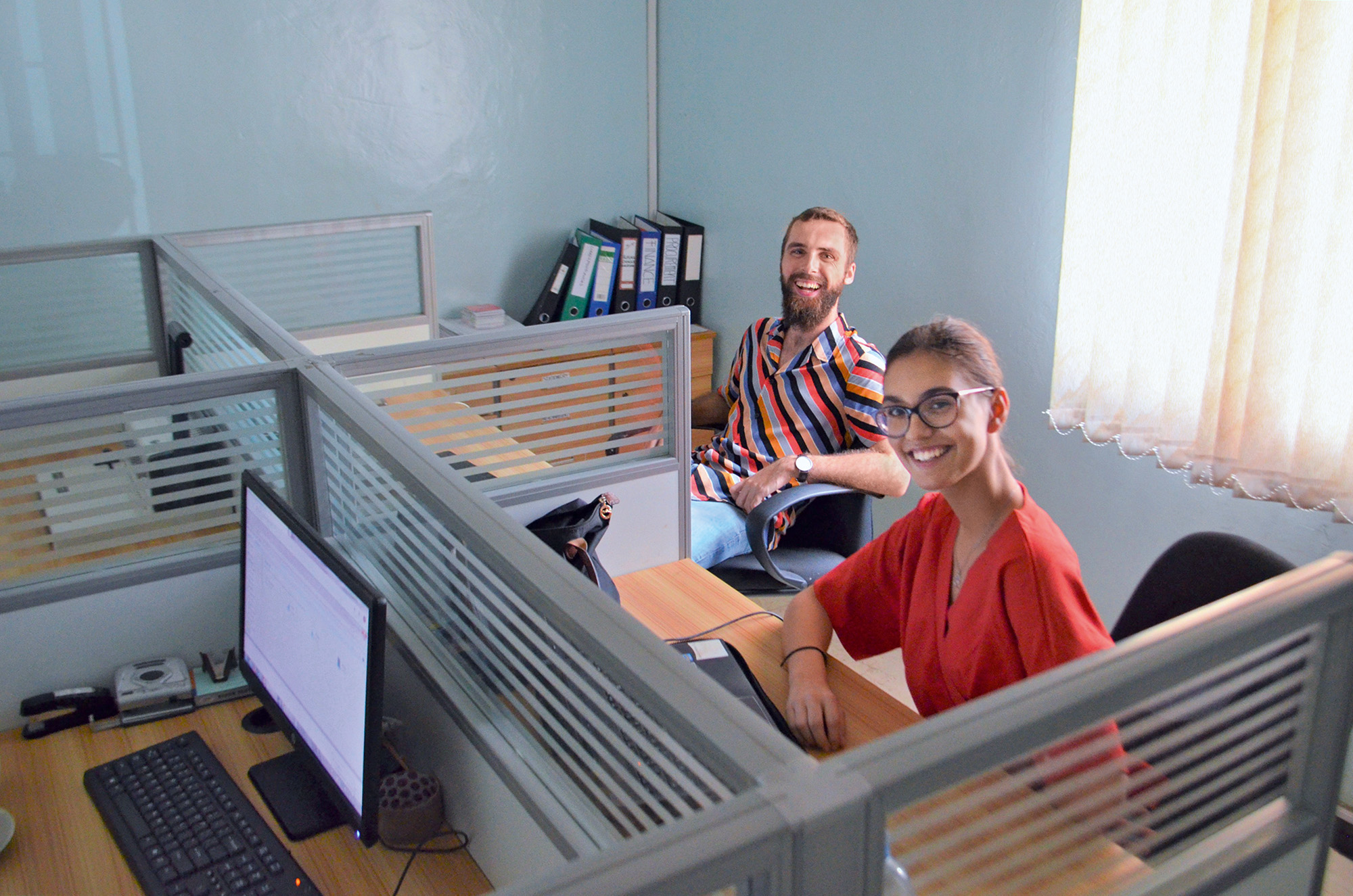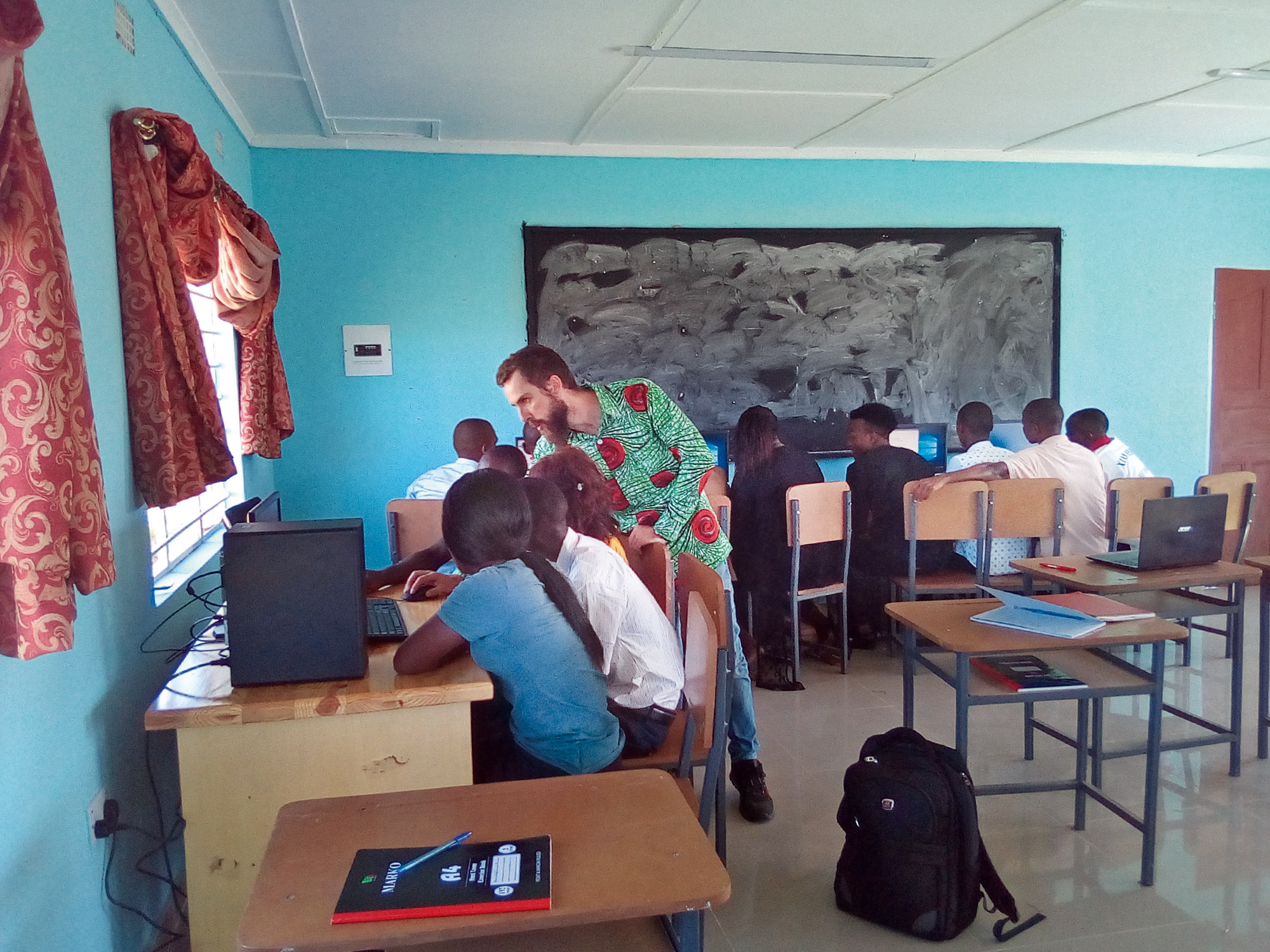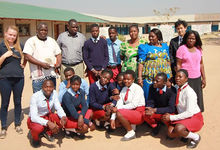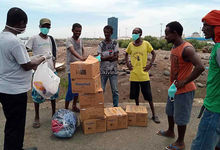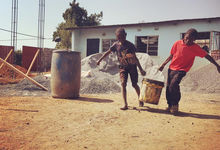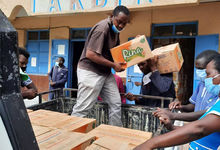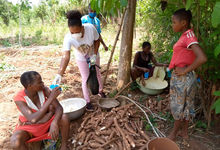Muli buuti!
In the Tonga language, this means “Good day!” Helen (19) from the congregation of Heide and Silvan (26) from the congregation of Backnang (both in Germany) both did their “weltwärts” development volunteer service in Zambia. Following is a first-hand report on a fascinating experience.
Helen writes:
My name is Helen. I am from the congregation of Heide in the west of Schleswig-Holstein. In September 2019, Silvan and I began our volunteer service programme with “weltwärts” in Zambia. I was made aware of this opportunity by way of a report in the Unsere Familie magazine about the volunteer programme with NAK-karitativ. I applied shortly thereafter. The programme is a voluntary developmental service funded by the Federal Ministry for Economic Cooperation and Development. A few months later, I finally received my confirmation: after graduation I would be going to Zambia for twelve months! My employer for the next year would be the New Apostolic Church Relief Organization (NACRO). NACRO is the local relief agency of the New Apostolic Church in Zambia.
My work in Zambia
The job Silvan and I were given was to support NACRO in its work on business trips, in the office, and in local projects wherever we happened to be deployed. We were both assigned different areas of responsibility. My area of responsibility includes the Community Development department. This incorporates several projects, among them a school sponsored by NACRO, an orphanage, and a group savings project. The group savings projects in particular constitute an important component of NACRO’s project work. The people in these groups pay small monthly instalments into a joint account, depending on how much they can afford. After mutual consultation, they can then receive short-term loans from this account for necessary investments in order to generate income. Among other things, my work consists of visiting these savings groups and documenting the progress of their savings.
A wealth of impressions
Now that I have spent my first six months in Zambia, which is lively and fascinating, I have learned a few things in the meantime, namely to communicate about the essentials in four different local languages, to eat with my hands according to local tradition, to wash clothes by hand, and much more.
The thing I find most inspiring about the people of Zambia is that they always know how to help themselves, and that they can be very resourceful when things do not go as planned. This ability is very useful, especially here in the country, as the living conditions are significantly more difficult there than in the city. In many villages there is neither running water nor electricity. Nevertheless, you can still wash yourself, load your cell phone by solar panel, and make phone calls. The mobile phone network even extends quite deeply into the rural areas, for the most part.
In a spiritual respect I have experienced God here in a completely different way. The New Apostolic Church is the third-largest Christian church in the country and has a significantly greater presence than most other Christian denominations. For important divine services there are even guides with vests from NAC Security who show the way to church. The church choir also sounds particularly impressive due to the many powerful voices. This has given me the impression that people here are more conscientious in the way they live their faith, and I too have become more aware of my faith than I was before in Germany.
Warm regards from Zambia, Helen
Silvan writes:
Muli bwanji? (Nyanja for: “Hey, how’s it going?”). My name is Silvan, and I come from Backnang. After completing my bachelor's degree and working in my profession for a few years, I decided to make a change in my life. There is a great deal to learn here: starting with the language, and ranging from music to traditional dance, to the various eating habits that differ quite significantly even between the 72 ethnic groups that make up the country. Beyond that, I am also learning how to better appreciate the little things and deal with various challenges in a better way.
The catalyst
I heard about the volunteer programme by NAK-karitativ at the International Youth Convention (IYC) in Düsseldorf. At the NAK-karitativ booth in Hall 6, I got into a conversation with Jonathan. He himself is a former volunteer in Zambia, and he told me about some of his experiences.
Projects on the farm
In my volunteer service with NACRO I support the team in Chibombo, a small town some 90 kilometres from Lusaka. NACRO operates three projects on an 18.5-hectare farm there. This farm has pigs and a poultry farm for egg and meat production. Various types of vegetables are grown on approximately five hectares here. In the last few years a value chain for the production of tomato sauce, dried tomatoes, and mangos has also been added. Most recently, an agricultural training centre for disadvantaged young people was established in February 2019.
Up to 30 young people are to receive basic agricultural training here every year. Some of these young people are former street children and youth from poor backgrounds in rural areas. Since education is very expensive in Zambia, the training centre gives them the opportunity to obtain free training. Accommodation and meals are provided. That is why the motivation among these trainees is very high. It is great to connect with them.
God is a topic of conversation
Zambia is a markedly Christian country, and faith plays a big role in everyday life. God is often a topic of discussion, and it is completely normal to talk to strangers about religion or one’s denomination after exchanging a few words. I was also very inspired by the charitable nature of the Zambian people: sharing is good form in Zambia, even if you and your family do not own much. I am also fascinated at how much joy a simple smile can produce.
Talk to you soon! Silvan
Due to the coronavirus pandemic, Helen and Silvan had to return to Germany.
This article first appeared in the Unsere Familie magazine, 10/2020.
Article info
Author:
Date:
Keywords:
Helen Ballnus,
Silvan Vollmer
20.08.2020
Zambia,
Aid agencies,
Social commitment


